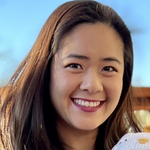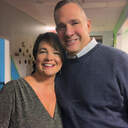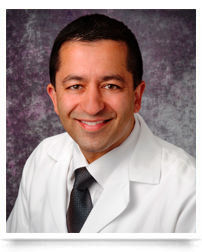About Me (In My Own Words)
One Month Post-Op: What I Want You to Know
I’m in my mid-30s, relatively healthy, and was shocked when I found out I needed open heart surgery. Today—April 4—is the one-month anniversary of my successful, curative mitral valve repair. I’m sharing my story in hopes that it helps make heart valve surgery feel a little less scary and unknown for someone out there.
If you take just one thing away from this: please don’t skip your annual physical. Mine uncovered severe mitral valve prolapse that could have led to imminent heart failure (the left side of my heart was already dilating). It likely saved my life.
At my routine annual wellness exam in early February, my doctor Dr. Rachel Dong—and then my cardiologist Dr. Benjamin Noor—each heard a murmur for the first time. I had dismissed my chest tightness and shortness of breath as asthma, but an echocardiogram revealed the truth. If it had been moderate, I could’ve waited and monitored. But it was severe. Severe mitral valve prolapse can cause blood to leak backward into the lungs, strain the heart, and lead to arrhythmias or heart failure. Dr. Noor sent an urgent referral to cardiac surgeon Dr. Joanna Chikwe, and within 30 minutes of the diagnosis, I got a call from Dr. Chikwe’s team. They were moving fast—surgery could be as soon as the following week.
Exactly one week later, I underwent robotic open heart surgery at Cedars-Sinai. This minimally invasive approach uses small incisions between the ribs and avoids sawing through the breastbone, which typically means fewer complications, faster recovery, and smaller scars. My incredible surgeon and her team made it happen—squeezing me in for a CT angio scan that normally takes months to schedule, fast-tracking pre-op appointments, and even helping me resolve a last-minute insurance lapse due to a COBRA admin issue. They moved mountains.
In the week leading up to surgery, I was extremely anxious and sought emotional support from my village. What weighed on me was whether this surgery was medically necessary and what alternatives there might be. My dear college friend who is a doctor put me in touch with her friend who is an interventional cardiologist, and he thought that given my facts, this was the right and only possible next step. My grandfather who had a leaky valve did not have the benefit of a repair like this and experienced a cascade of adverse health effects in the last decade of his life. My uncle who had a valve replacement reassured me that the science and technology are so good now that his recovery was as smooth as could be. A mentor who had gone through surgery told me that once it was done, I’d be able to put the whole heart valve condition in the rearview mirror. I reached out to friends who supported me by sharing their own families’ positive experiences with heart surgery. On operation day, a surgical resident reassured me: “If you wake up in the cardiac ICU, everything went well.” And that’s exactly what happened. I fell asleep with anesthesia and woke up lucid in the ICU.
Before surgery, all I received was an IV in my arm and a nerve block in my shoulder. The chest tubes, larger IVs, and incisions were done after I was out. My valve was repaired, not replaced, which is typically preferred when possible, since it preserves the natural valve and doesn’t require lifelong blood thinners.
Post-op pain—mostly on my right side—was intense at first. It hurt to breathe. But once the chest tubes were removed (yanked out with finesse), the pain quickly subsided. I did take oxycodone during my hospital stay and intermittently for a week afterward, mostly at night—it helped me stay comfortable enough to heal.
I was discharged Friday, just three days post-op. At home, I felt better every day. Two weeks later, most of the pain had subsided. Three weeks later, I felt back to normal. Now, just four weeks later, I feel better than I’ve felt in years. I walked up a steep hill the other day with no shortness of breath or chest tightness—something I hadn’t experienced in a long time.
I’m not back at CrossFit yet and still avoiding heavy lifting. I didn’t need formal cardiac rehab, but I was encouraged to walk daily and listen to my body—small walks in my home became longer ones in my neighborhood. Showering, sleeping, and weaning off pain meds all happened gradually over the first two weeks; in fact, I was able to shower on my first day home from the hospital. I’ve been cleared to resume most normal activities, and I’m moving with care and filled with gratitude—I’m so thankful to be here.
More Info About Me & My Heart
More About Me
-

I am from:
Los Angeles
-

My surgery date is:
March 4, 2025
-

I was diagnosed with:
Mitral Regurgitation
-

My surgery was:
Mitral Valve Repair
-

-

 I am from: Los Angeles
I am from: Los Angeles My surgery date is: March 4, 2025
My surgery date is: March 4, 2025






